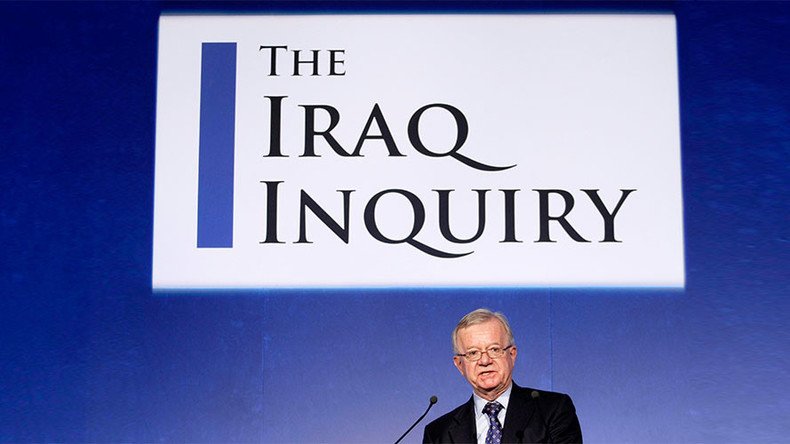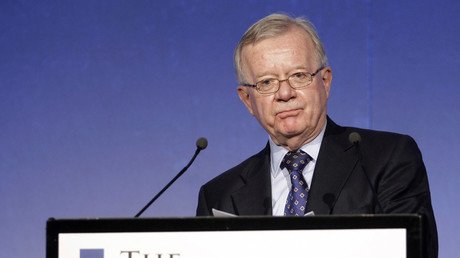Chilcot's Iraq Inquiry: Truth at last or establishment whitewash?

Massively delayed and hugely controversial, the Chilcot Inquiry into the 2003 Iraq War reports back on July 6. RT examines the background of the UK’s official probe into one of the nation’s most divisive modern crises.
On March 20, 2003, Britain went to war in Iraq alongside its US allies. The nation is still dealing with the fallout from that decision, which saw the country plunged into a protracted war of occupation.
The Chilcot Inquiry began in 2009 at the direction of then-Prime Minister Gordon Brown. The probe took its name from its chair, former senior civil servant Sir John Chilcot.
The original panel included four other establishment heavyweights: Professor of War Studies Sir Lawrence Freedman, former diplomat Sir Roderic Lyne, cross-bench peer Baroness Usha Prashar, and the late Sir Martin Gilbert – an esteemed Oxford historian who died in 2015 after a long illness.
Scheduled to last for two years, by the time it reports on Wednesday it will have run for seven. The report’s cost to the taxpayer is estimated to be as high as £10 million (US$13 million). It will be over 2.5 million words long.
The inquiry’s remit is to examine the first eight years of the Iraq War, starting with the run-up to hostilities and including the period of the occupation.
The stated aim of the report is to explain “the UK's involvement in Iraq, including the way decisions were made and actions taken, to establish, as accurately as possible, what happened and to identify the lessons that can be learned.”
To the chagrin of the Iraq War’s numerous critics, the report panel has no legal power to charge anyone involved.
The investigation began only after years of public clamoring and two smaller inquiries into some of the circumstances surrounding the start of the war.
These were the Hutton Report in January 2004 – which examined the circumstances surrounding the death of UN weapons inspector Dr David Kelly – and the Butler Inquiry in July that same year, which looked at the intelligence which had informed the decision to go to war.
The intelligence issue was also investigated by both the Commons Foreign Affairs Committee and the Joint Parliamentary Intelligence and Security Committee in 2003. These four investigations were not enough to quell demands for a full public reckoning.
Intense criticism developed over the process of Maxwellization, a rule under which those criticized by the inquiry can see and challenge what is said about them.
The sheer lateness of the report was also a major sticking point. In August 2015, frustrated family members of service personnel killed during the war threatened to sue if a publication date was not set.
Proceedings approached farce in early April when a barrister-led inquiry was launched into the Iraq inquiry’s lateness. With the Chilcot findings out Wednesday, the inquiry-into-the-inquiry has yet to report.
Finally, in October 2015 Chilcot wrote a letter – later widely published – to PM David Cameron, saying that the report would be finished by April 2016 and ready for publication in June or July.













